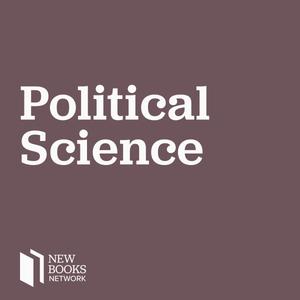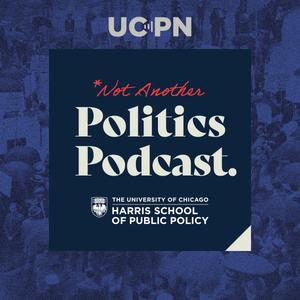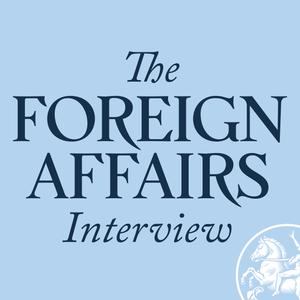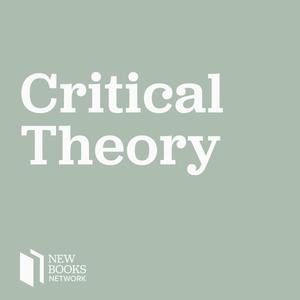
New Books in Political Science
New Books Network
Interviews with Political Scientists about their New Books
- 32 minutes 43 secondsTalking Thai Politics: Why Thai Politics isn’t All About China
How far does geopolitics relate to domestic political leanings? Are politically progressive Thais more likely to be pro-US, and more politically conservative Thais likely to favour China? A recent article by Petra Alderman, Duncan McCargo, Alfred Gerstl and James Icovocci drawing on a 2022 survey finds some relationship between liberal domestic political leanings and sympathy for the United States, but also shows that conservative domestic political leanings do not automatically translate into support for China. To view election outcomes in a country such as Thailand as “wins” for one or other great power would be highly misleading.
Article details: Petra Alderman, Duncan McCargo, Alfred Gerstl and James Icovocci, ‘All About China? (Mis)Reading Domestic Politics through a Great Power Lens’, Asian Survey, 2024, 64 (5): 877–911.
Petra Alderman is a Post-Doctoral Research Fellow in Leadership for Inclusive and Democratic Politics at the University of Birmingham, and a Research Fellow at Birmingham’s Centre for Elections, Democracy, Accountability and Representation (CEDAR).
Duncan McCargo is President’s Chair in Global Affairs at Nanyang Technological University.
Talking Thai Politics brings crafted conversations about the politics of Thailand to a global audience. Created by the Generation Thailand project at Nanyang Technological University, the podcast is co-hosted by Duncan McCargo and Chayata Sripanich. Our production assistant is Li Xinruo.
Learn more about your ad choices. Visit megaphone.fm/adchoices
Support our show by becoming a premium member! https://newbooksnetwork.supportingcast.fm/political-science
22 November 2024, 9:00 am - 1 hour 37 minutesRobert B. Talisse, "Civic Solitude: Why Democracy Needs Distance" (Oxford UP, 2024)
An internet search of the phrase "this is what democracy looks like" returns thousands of images of people assembled in public for the purpose of collective action. But is group collaboration truly the defining feature of effective democracy?
In Civic Solitude: Why Democracy Needs Distance (Oxford UP, 2024), Robert B. Talisse suggests that while group action is essential to democracy, action without reflection can present insidious challenges, as individuals' perspectives can be distorted by group dynamics. The culprit is a cognitive dynamic called belief polarization. As we interact with our political allies, we are exposed to forces that render us more radical in our beliefs and increasingly hostile to those who do not share them. What's more, the social environments we inhabit in our day-to-day lives are sorted along partisan lines. We are surrounded by triggers of political extremity and animosity. Thus, our ordinary activities encourage the attitude that democracy is possible only when everyone agrees--a profoundly antidemocratic stance.
Drawing on extensive research about polarization and partisanship, Talisse argues that certain core democratic capacities can be cultivated only at a distance from the political fray. If we are to meet the responsibilities of democratic citizenship, we must occasionally step away from our allies and opponents alike. We can perform this self-work only in secluded settings where we can engage in civic reflection that is not prepackaged in the idiom of our political divides, allowing us to contemplate political circumstances that are not our own.
Learn more about your ad choices. Visit megaphone.fm/adchoices
Support our show by becoming a premium member! https://newbooksnetwork.supportingcast.fm/political-science
21 November 2024, 9:00 am - 52 minutes 46 secondsErica Benner, "Adventures in Democracy: The Turbulent World of People Power" (Penguin, 2024)
Democracy is a living, breathing thing and Dr. Erica Benner has spent a lifetime thinking about the role ordinary citizens play in keeping it alive: from her childhood in post-war Japan, where democracy was imposed on a defeated country, to working in post-communist Poland, with its sudden gaps of wealth and security. Adventures in Democracy: The Turbulent World of People Power (Penguin, 2024) draws on her experiences and the deep history of self-ruling peoples – going back to ancient Greece, the French revolution and Renaissance Florence – to rethink some of the toughest questions that we face today.
What do democratic ideals of equality mean in a world obsessed with competition, wealth, and greatness? How can we hold the powerful to account? Can we find enough common ground to keep sharing democratic power in the future? Challenging well-worn myths of heroic triumph over tyranny, Dr. Benner reveals the inescapable vulnerabilities of people power, inviting us to consider why democracy is worth fighting for and the role each of us must play.
This interview was conducted by Dr. Miranda Melcher whose new book focuses on post-conflict military integration, understanding treaty negotiation and implementation in civil war contexts, with qualitative analysis of the Angolan and Mozambican civil wars.
Learn more about your ad choices. Visit megaphone.fm/adchoices
Support our show by becoming a premium member! https://newbooksnetwork.supportingcast.fm/political-science
21 November 2024, 9:00 am - 56 minutes 58 secondsLizhi Liu, "From Click to Boom: The Political Economy of E-Commerce in China" (Princeton UP, 2024)
How do states build vital institutions for market development? Too often, governments confront technical or political barriers to providing the rule of law, contract enforcement, and loan access. In From Click to Boom: The Political Economy of E-Commerce in China (Princeton, 2024) Lizhi Liu suggests a digital solution: governments strategically outsourcing tasks of institutional development and enforcement to digital platforms—a process she calls “institutional outsourcing.”
China’s e-commerce boom showcases this digital path to development. In merely two decades, China built from scratch a two-trillion-dollar e-commerce market, with 800 million users, seventy million jobs, and nearly fifty percent of global online retail sales. Contrary to conventional wisdom, Liu argues, this market boom occurred because of weak government institutions, not despite them. Gaps in government institutions compelled e-commerce platforms to build powerful private institutions for contract enforcement, fraud detection, and dispute resolution. For a surprisingly long period, the authoritarian government acquiesced, endorsed, and even partnered with this private institutional building despite its disruptive nature. Drawing on a plethora of interviews, original surveys, proprietary data, and a field experiment, Liu shows that the resulting e-commerce boom had far-reaching effects on China.
Institutional outsourcing nonetheless harbors its own challenges. With inadequate regulation, platforms may abuse market power, while excessive regulation stifles institutional innovation. China’s regulatory oscillations toward platforms—from laissez-faire to crackdown and back to support—underscore the struggle to strike the right balance.
Lizhi Liu is assistant professor at the McDonough School of Business at Georgetown University, where she is also a faculty affiliate of the Department of Government. Her work has been published by American Economic Review: Insights, Studies in Comparative International Development, Minnesota Law Review, Oxford University Press, and Princeton University Press. She was also listed as a Poets&Quants Top 50 Undergraduate Business Professor of 2021. She holds degrees in Political Science (PhD), Statistics (MS), and International Policy Studies (MA) from Stanford University and in International Relations (LLB) from Renmin University of China.
Interviewer Peter Lorentzen is an Associate Professor of Economics at the University of San Francisco, a nonresident scholar at the UCSD 21st Century China Center, an alumnus of the Public Intellectuals Program of the National Committee on US-China Relations, and is currently a visiting scholar at the Stanford Center on China’s Economy and Institutions. His research focuses on the economics of information, incentives, and institutions, primarily as applied to the development and governance of China. He created the unique Master’s of Science in Applied Economics at the University of San Francisco, which teaches the conceptual frameworks and practical data analytics skills needed to succeed in the digital economy.
Lorentzen’s other NBN interviews relating to China’s tech sector include Trafficking Data, on how Chinese and American firms exploit user data, The Tao of Alibaba, on Alibaba’s business model and organizational culture, Surveillance State, on China’s digital surveillance, Prototype Nation, on the culture and politics of China’s innovation economy.
Learn more about your ad choices. Visit megaphone.fm/adchoices
Support our show by becoming a premium member! https://newbooksnetwork.supportingcast.fm/political-science
16 November 2024, 9:00 am - 47 minutes 33 secondsTom Theuns, "Protecting Democracy in Europe: Pluralism, Autocracy and the Future of the EU" (Hurst, 2024)
The European Union has a big problem—a potentially fatal one. How should it deal with a member state or states that reject democracy and the rule of law?
So far, not even Viktor Orbán’s Hungary has turned full-blown authoritarian. However, his 14 unbroken years of “illiberal democracy”, his constitution rewriting, creeping media control, challenges to judicial independence, and calls for popular resistance against the EU are becoming less easy to ignore or accommodate.
Yet, the EU’s tools to address democratic backsliding are blunt and its institutions are reluctant to use them. Above all, while a member state can leave the union, the union itself has no power to expel a club member that breaks its core democratic rules.
In Protecting Democracy in Europe: Pluralism, Autocracy and the Future of the EU (Hurst, 2024), Tom Theuns looks back at the history of this design fault and how to put it right. He writes: "EU member states cannot both permit a frankly autocratic state to continue to be a member state of the Union and at the same tie pretend to be committed to democracy"
Tom Theuns is a Senior Assistant Professor of Political Theory and European Politics at Leiden University’s Institute of Political Science and an Associate Researcher at Sciences Po in Paris.
Tim Gwynn Jones is an economic and political-risk analyst at Medley Advisors, who also writes and podcasts at twenty4two on Substack.
Learn more about your ad choices. Visit megaphone.fm/adchoices
Support our show by becoming a premium member! https://newbooksnetwork.supportingcast.fm/political-science
16 November 2024, 9:00 am - 53 minutes 59 secondsSamuel Fury Childs Daly, "Soldier's Paradise: Militarism in Africa After Empire" (Duke UP, 2024)
In Soldier's Paradise: Militarism in Africa After Empire (Duke UP, 2024), Samuel Fury Childs Daly tells the story of how Africa’s military dictators tried and failed to transform their societies into martial utopias. Across the continent, independence was followed by a wave of military coups and revolutions. The soldiers who led them had a vision. In Nigeria and other former British colonies, officers governed like they fought battles—to them, politics was war by other means. Civilians were subjected to military-style discipline, which was indistinguishable from tyranny. Soldiers promised law and order, and they saw judges as allies in their mission to make society more like an army. But law was not the disciplinary tool soldiers thought it was. Using legal records, archival documents, and memoirs, Daly shows how law both enabled militarism and worked against it. For Daly, the law is a place to see decolonization’s tensions and ironies—independence did not always mean liberty, and freedom had a militaristic streak. In a moment when militarism is again on the rise in Africa, Daly describes not just where it came from but why it lasted so long.
Samuel Fury Childs Daly, Associate Professor of History at the University of Chicago and author of A History of the Republic of Biafra: Law, Crime, and the Nigerian Civil War.
Elisa Prosperetti, Assistant Professor of History at the National Institute of Education, Nanyang Technological University, Singapore. Her first book, An Anticolonial Development: Public Education, Emancipation and its Limits in West Africa, is forthcoming with Cambridge University Press in 2025.
Learn more about your ad choices. Visit megaphone.fm/adchoices
Support our show by becoming a premium member! https://newbooksnetwork.supportingcast.fm/political-science
16 November 2024, 9:00 am - 44 minutes 33 secondsHow Can Going Inside the Political Mind Help Us to Better Understand Development?
Why do efforts to build effective states and deliver services to citizens so often go wrong? And how can understanding the inside of the political mind empower us to achieve better results? In this podcast, Nic Cheeseman talks to Greg Power about his important new book, based on the experience of working with hundreds of politicians in more than sixty countries. In Inside the Political Mind: The Human Side of Politics and How It Shapes Development (Oxford UP, 2024), Greg explains why individual politicians and norms of behaviour and more powerful than formal rules and institutions, and why practical challenges so often encourage citizens and politicians to go around the state rather than working through it. This leads to a radical new way of thinking about state-building and development that works from the bottom-up on the basis of what leaders and their people want, rather than what the international community assumes they need.
Guest:
Greg Power is the founder and Board Chair of Global Partners Governance Practice (GPG), a social purpose company that provides support to politicians, ministers and officials to strengthen their systems of governance. He is well known for having worked in a remarkable variety of countries including many – such as Iraq – during periods in which political systems and state institutions were under the most intense strain. He was previously a special adviser to British ministers Rt Hon Robin Cook MP and Rt Hon Peter Hain MP, working on strategies for parliamentary reform, constitutional change and the wider democratic agenda in conjunction with the Prime Minister’s Strategy Unit and Downing Street policy staff, and was awarded an OBE for services to parliamentary democracy and political reform in the January 2023 New Year’s Honours.
Presenter:
Nic Cheeseman is the Professor of Democracy and International Development at the University of Birmingham and Founding Director of CEDAR.
The People, Power, Politics podcast brings you the latest insights into the factors that are shaping and re-shaping our political world. It is brought to you by the Centre for Elections, Democracy, Accountability and Representation (CEDAR) based at the University of Birmingham, United Kingdom. Join us to better understand the factors that promote and undermine democratic government around the world and follow us on Twitter at @CEDAR_Bham!
Learn more about your ad choices. Visit megaphone.fm/adchoices
Support our show by becoming a premium member! https://newbooksnetwork.supportingcast.fm/political-science
15 November 2024, 9:00 am - 1 hour 3 minutesPostscript: Reflections on the 2024 American Presidential Election
Many pundits are rushing to judgement – claiming to identify the “one” reason that Donald Trump won or Kamala Harris lost the 2024 Presidential Election. Today’s Postscript offers a nuanced conversation among four political scientists to gather some key take-aways and interpretive tools for looking forward to the second Trump presidency, midterms, 2028 presidential election, and 2030 redistricting.
Julia Azari is Professor of Political Science at Marquette University and a prolific media commentator on politics. Jonathan Bernstein is a political scientist who focuses on political parties, Congress, the presidency, elections, and democracy. Political Parties, Congress the Presid, Elections, and Democracy. Meena Bose is the Executive Dean for Public Policy and Public Service Programs at the Peter S. Kalikow School of Government, Public Policy and International Affairs and director of the Peter S. Kalikow Center for the Study of the American Presidency, both at Hofstra University. Daniel E. Ponder is the L.E. Meador Professor of Political Science and Director of the Meador Center for Politics and Citizenship at Drury University..
Mentioned:
- Julia Azari and Jennifer K. Smith on informal norms: “Unwritten Rules: Informal Institutions in Established Democracies”
- Julia Azari’s book on mandates: Delivering the People's Message: The Changing Politics of the Presidential Mandate
- John Burn-Murdoch’s graph on incumbents losing globally in Financial Times
- Gallup data on nostalgia for past presidents in Jeffrey M. Jones, Retrospective Approval of JFK Rises to 90%; Trump at 46%
- Julia and Jonathan’s Good Politics/Bad Politics podcast
Learn more about your ad choices. Visit megaphone.fm/adchoices
Support our show by becoming a premium member! https://newbooksnetwork.supportingcast.fm/political-science
14 November 2024, 9:00 am - 46 minutes 1 secondScott J. Weiner, "Kinship, State Formation and Governance in the Arab Gulf States" (Edinburgh UP, 2024)
Tribe-state relations are a foundational element of authoritarian bargains in the Middle East, and in particular in the Gulf States. However, the structures of governance built upon that foundation exhibit wide differences. What explains this variation in the salience of kinship authority?
Through a case comparison of Kuwait, Qatar and Oman, in Kinship, State Formation and Governance in the Arab Gulf States (Edinburgh University Press, 2022) Dr. Scott Weiner shows that variation in tribal access to limited resources before state building can account for these differences. Its conclusions are based on seven months of archival research and interviews in Arabic and English, and reveal new details about state formation on the Arabian Peninsula.
This interview was conducted by Dr. Miranda Melcher whose new book focuses on post-conflict military integration, understanding treaty negotiation and implementation in civil war contexts, with qualitative analysis of the Angolan and Mozambican civil wars.
Learn more about your ad choices. Visit megaphone.fm/adchoices
Support our show by becoming a premium member! https://newbooksnetwork.supportingcast.fm/political-science
13 November 2024, 9:00 am - 58 minutes 3 secondsAnthony Grasso, "Dual Justice: America's Divergent Approaches to Street and Corporate Crime" (U Chicago Press, 2024)
The United States incarcerates its citizens for property crime, drug use, and violent crime at a rate that exceeds any other developed nation – and disproportionately affects the poor and racial minorities. Yet the U.S. has never developed the capacity to consistently prosecute corporate wrongdoing. This disjuncture between the treatment of street and corporate crime is often narrated as hypocrisy. Others suggest that the disparity is rooted in a conservative backlash after the civil rights movement and the Great Society or a legacy of slavery, Jim Crow, and the racialization of crime.
In Dual Justice: America's Divergent Approaches to Street and Corporate Crime (U Chicago Press, 2024), Dr. Anthony Grasso interrogates the intertwined histories of street and corporate crime to find that the differences in punishment are more than modern hypocrisy. Examining the carceral and regulatory states' evolutions from 1870 through today, Grasso argues that divergent approaches to street and corporate crime share common, self-reinforcing origins. During the Progressive Era, scholars and lawmakers championed naturalized theories of human difference such as eugenics to justify instituting punitive measures for poor offenders and regulatory controls for corporate lawbreakers. These ideas laid the foundation for dual justice systems: criminal justice institutions harshly governing street crime and regulatory institutions governing corporate misconduct.
Even after eugenics was discredited, criminal justice and regulatory institutions have developed in tandem to reinforce politically constructed understandings about who counts as a criminal. Using an impressive array of sources and methods, Dr. Grasso analyzes the intellectual history, policy debates, and state and federal institutional reforms that consolidated these ideas, along with their racial and class biases, into America's legal system.
Dr. Anthony Grasso is an assistant professor of political science at Rutgers University Camden. His research focuses on American political development, law, and inequality.
Mentioned:
- Susan’s interview with Dr. Joanna Wuest on Born This Way: Science, Citizenship, and Inequality in the American LGBTQ+ Movement
- David Vogel, Fluctuating Fortunes: The Political Power of Business in America (Beard Books, 1989)
Learn more about your ad choices. Visit megaphone.fm/adchoices
Support our show by becoming a premium member! https://newbooksnetwork.supportingcast.fm/political-science
11 November 2024, 9:00 am - 28 minutes 36 secondsTalking Thai Politics: Tak Bai and Beyond, Thailand’s Southern Insurgency
In the wake of the twentieth anniversary of the dreadful Tak Bai massacre, what are the prospects for a resolution of the long-standing insurgency in Thailand Malay-Muslim majority southern border provinces? Why has the Paetongtarn Shinawatra government failed to support justice for the families of the 85 men who died in the incident? Why do absurd conspiracy theories often loom larger than evidence-based analyses of the root causes underling the violence? And why does the Thai state struggle to embrace narratives of local identity that offer space for diversity, disagreement and pluralism?
Don Pathan is a senior journalist and security analyst, well known for his expertise on the Southern insurgency.
Duncan McCargo is President’s Chair in Global Affairs at Nanyang Technological University. He has published extensively on the southern conflict, including the award-winning book Tearing Apart the Land: Islam and Legitimacy in Southern Thailand (Cornell 2008).
Chayata Sripanich is a research associate with the Generation Thailand project.
Talking Thai Politics brings crafted conversations about the politics of Thailand to a global audience. Created by the Generation Thailand project at Nanyang Technological University, the podcast is co-hosted by Duncan McCargo and Chayata Sripanich. The production assistant for this episode was Nalinthip Ekapong.
Website: https://thaipolitics.leeds.ac.uk/podcasts/
Learn more about your ad choices. Visit megaphone.fm/adchoices
Support our show by becoming a premium member! https://newbooksnetwork.supportingcast.fm/political-science
8 November 2024, 9:00 am - More Episodes? Get the App
Your feedback is valuable to us. Should you encounter any bugs, glitches, lack of functionality or other problems, please email us on [email protected] or join Moon.FM Telegram Group where you can talk directly to the dev team who are happy to answer any queries.
 Foreign Policy Live
Foreign Policy Live
 The Good Fight
The Good Fight
 Not Another Politics Podcast
Not Another Politics Podcast
 The Foreign Affairs Interview
The Foreign Affairs Interview
 Past Present Future
Past Present Future
 New Books in Critical Theory
New Books in Critical Theory